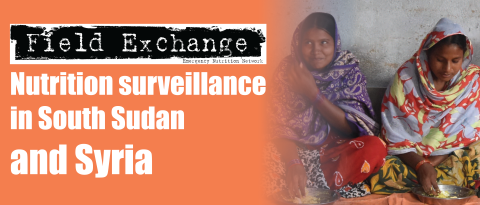Supportive supervision to improve the quality and outcome of outpatient care among malnourished children in Uganda
Research snapshot1
Suboptimal quality of paediatric care has been reported in resource-limited settings, but little evidence exists on interventions to improve it. This study aimed to test supportive supervision (SS) for improving health status of malnourished children, quality of case management, overall quality of care, and the absolute number of children enrolled in nutrition services through a cluster randomised trial in Arua district, Uganda. Six health centres were randomised to receive SS or no intervention. SS specific to nutrition services was delivered at a high frequency by a team of two trained local staff to health centre staff at intervention centres (phase one). SS was later extended to community health workers (CHWs) (phase two). The primary outcome was the cure rate of children aged between 6 and 59 months enrolled in health centres for the management of severe or moderate acute malnutrition. Quality of case management was assessed by six pre-defined indicators; quality of care was assessed using the National Nutrition Service Delivery Assessment (NSDA) tool; and access to care was estimated by the number of children accessing health centre nutrition services.
A total of 737 children was enrolled in the study. In the intervention arm, the cure rate (83.8% vs 44.9%, risk ratio (RR)=1.91, 95% CI: 1.56–2.34, p=0.001), quality of care as scored by NSDA (RR=1.57, 95% CI: 1.01–2.44, p=0.035) and correctness in complementary treatment (RR=1.52, 95% CI: 1.40–1.67, p=0.001) were significantly higher compared with the control group. With the extension of SS to CHWs, significantly more children (38.6%) accessed care from intervention health centres than they had previously (38.4% before extension of SS to CHWs and 62% after; RR=1.26, 95% CI:1.11–1.44, p=0.001). The proportion of children accessing care in the control group was 45% in phase one and 49% in phase two. The authors conclude that SS significantly improved the cure rate of malnourished children and the overall quality of care and providing SS to CHWs significantly increased the crude number of children enrolled in nutrition services. More research is needed to confirm these results and evaluate the cost-effectiveness of SS.
Endnote
1Lazzerini M, Wanzira H, Lochoro P, et al. Supportive supervision to improve the quality and outcome of outpatient care among malnourished children: a cluster randomised trial in Arua district, Uganda. BMJ Global Health 2019;4:e001339. doi:10.1136/bmjgh-2018-001339


